If you fall off the bandwagon over the holidays, don’t be too hard on yourself! Motivation levels will rise and fall but that’s okay, you’re human, it happens. If you’ve had the odd extra (or extra, extra) glass of wine or enjoyed a delicious meal and gone back for seconds, focus on jumping right back on the healthy bandwagon, remembering that each meal is an opportunity to make healthy choices and start again. Just because you’ve gone ‘off plan’ doesn’t mean all is lost!
‘All or nothing’ mentality
Our mindset has a large impact on the choices we make. If you notice yourself falling into an ‘all or nothing’ pattern take some time to notice and write down some of the thoughts you are experiencing. For example, rather than saying “I will never lose weight because I ate a piece of cake”, change this to something more positive such as, “a single piece of cake won’t hinder my weight loss, especially because I am otherwise eating a nourishing balanced diet and exercising regularly”.
Treats as part of the plan
As a part of our philosophy at Feel Fresh Nutrition, we encourage people to enjoy treats as part of their meal plan twice per week. ‘Treats’ are food choices that you don’t choose regularly. Choices may include chocolate cake, fish and chips, ice-cream, pizza, confectionery, or Thai takeaways. Typically, these food choices tend to be high in added sugar and/or saturated fat, and have low levels of essential nutrients, and fibre. We understand that life is all about balance and planning some of your favourite foods as a part of your week will ensure you feel less restricted and you will be less likely to overeat or binge.
In the grand scheme of things, enjoying two special meals or snacks each week will not hinder your progress, as long as you have a guilt-free experience, and choose those foods carefully – simply because of the sheer joy of indulgence! It’s what you do most of the time, on a consistent, long-term basis that makes all the difference and defines how you eat.
Social occasions and pulling back
During the holidays our balance can become tested. With many social events, it can be easy to overindulge. Sometimes, it might even seem impossible to not! But you can stay on track. You just need to be mindful and have a plan. During this time, it can be beneficial to set boundaries. Where possible, make healthy choices and focus on portion sizes, ensuring you don’t overeat. Here are a few tips to help keep your balance:
Crowding Out
It is officially platter season! Instead of feeling like you have to deprive yourself of certain foods when you are out, why don't you concentrate on the options that work beautifully for you? If you are low carb, then get stuck into the proteins (sliced meats, cheese, nuts) and vegetables (carrot sticks, olives, grapes) and avoid too much of the crackers, breadsticks and bread. Have you noticed that devilled eggs also seem to be back? They’re a winner in our books.
When you are dining out
This is an easy one to enact, no matter the menu. Rather than overthinking what’s on offer, start with filling up on certain foods. If it’s plated, start filling your plate with a side of seasonal vegetables or salads. This will leave less room for the pasta and bread rolls and chips.
Avoid over-eating due to too many delicious choices
Aim to eat until you are 80% full. Remember to eat mindfully without distraction, chewing your food thoroughly!
Limit alcoholic drinks
Set yourself a goal for each week, this may be having 4 alcohol-free nights each week and when consuming alcohol try to have a glass of water or soda water between each drink. Or you might enjoy a nice alternative like kombucha.
Be prepared with healthy snacks
Bring your own platter to gatherings. Try some veggie sticks with hummus, olives, fresh seasonal fruit, and mixed nuts.
Try your best not to skip meals
Forgetting to have lunch will leave you hungry, tired, and craving a quick pick-me-up which usually is not the most nourishing choice!
Sleep!
If you’ve had a good night’s sleep, you’re much less likely to reach for sugary options in front of you to provide a quick burst of energy. Aim for 7-9 hours each night and notice the difference!
Self- sabotage
Here is some food for thought: Say you’re late to work one morning. Would you, therefore, think, “Oh well, may as well give up for the day and be late for everything”? Or would you keep on with your day as planned and manage your time better the following morning? Hopefully, it would be the latter, understanding that one little hiccup does not equal complete failure. If you overindulge or choose a pretty luxurious meal that you then wish you hadn’t, the best bit is, you have many opportunities every day to just choose healthy foods and eat to feel fantastic!
It may be helpful to look at your week as a whole, noticing that if you eat 3 meals a day, that makes 21 meals each week. If you enjoy 2-3 meals off your plan each week, in the larger scheme of things that’s quite a small percentage and will not hinder your progress to reach your goals.
Remember, it is what we do every day that affects our health, not what we do sometimes. Moderation and balance is everything to creating a healthy, sustainable lifestyle with food that you love and habits that suit you.



